Zainab Abohashima
An Efficient Binary Harris Hawks Optimization based on Quantum SVM for Cancer Classification Tasks
Feb 24, 2022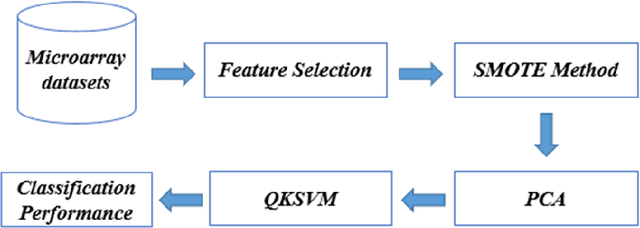
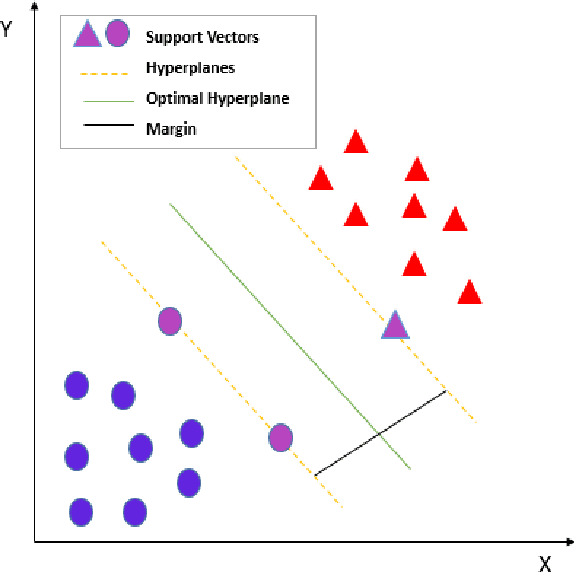

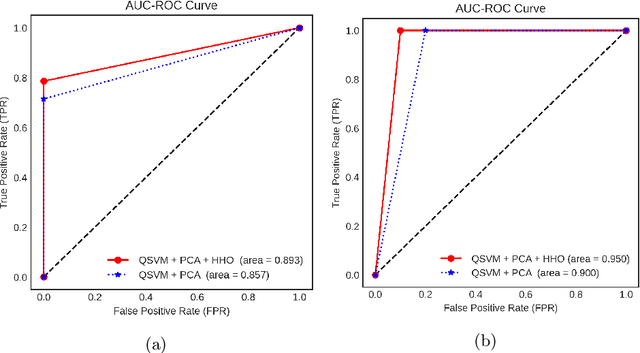
Abstract:Cancer classification based on gene expression increases early diagnosis and recovery, but high-dimensional genes with a small number of samples are a major challenge. This work introduces a new hybrid quantum kernel support vector machine (QKSVM) combined with a Binary Harris hawk optimization (BHHO) based gene selection for cancer classification on a quantum simulator. This study aims to improve the microarray cancer prediction performance with the quantum kernel estimation based on the informative genes by BHHO. The feature selection is a critical step in large-dimensional features, and BHHO is used to select important features. The BHHO mimics the behavior of the cooperative action of Harris hawks in nature. The principal component analysis (PCA) is applied to reduce the selected genes to match the qubit numbers. After which, the quantum computer is used to estimate the kernel with the training data of the reduced genes and generate the quantum kernel matrix. Moreover, the classical computer is used to draw the support vectors based on the quantum kernel matrix. Also, the prediction stage is performed with the classical device. Finally, the proposed approach is applied to colon and breast microarray datasets and evaluated with all genes and the selected genes by BHHO. The proposed approach is found to enhance the overall performance with two datasets. Also, the proposed approach is evaluated with different quantum feature maps (kernels) and classical kernel (RBF).
Hybrid quantum convolutional neural networks model for COVID-19 prediction using chest X-Ray images
Feb 08, 2021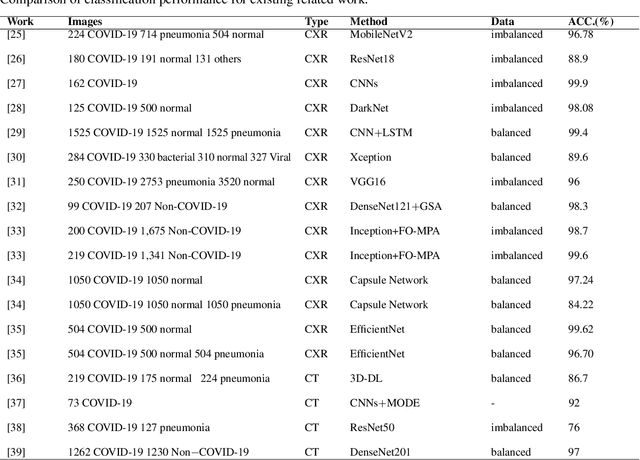
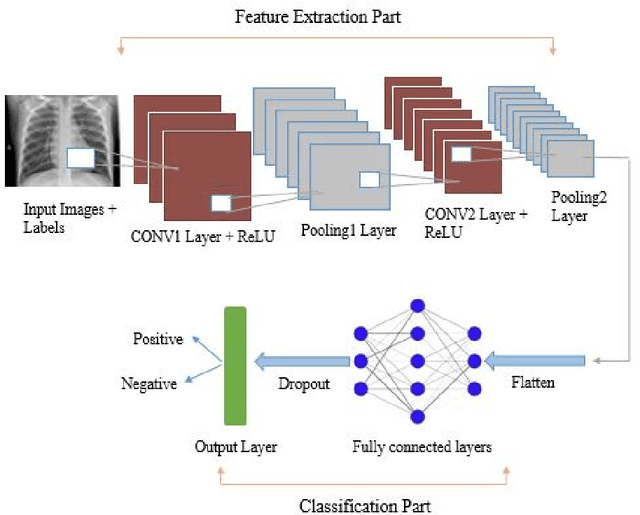
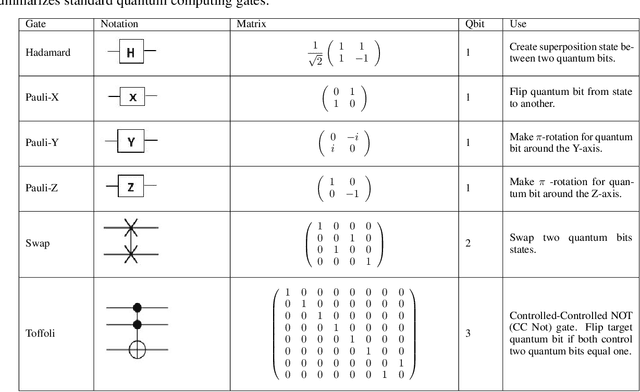
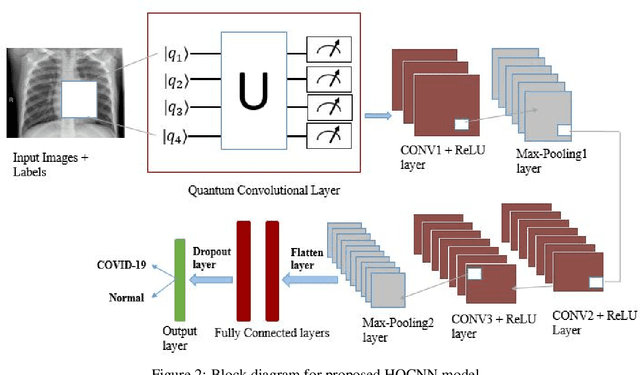
Abstract:Despite the great efforts to find an effective way for COVID-19 prediction, the virus nature and mutation represent a critical challenge to diagnose the covered cases. However, developing a model to predict COVID-19 via Chest X-Ray (CXR) images with accurate performance is necessary to help in early diagnosis. In this paper, a hybrid quantum-classical convolutional Neural Networks (HQCNN) model used the random quantum circuits (RQCs) as a base to detect COVID-19 patients with CXR images. A collection of 6952 CXR images, including 1161 COVID-19, 1575 normal, and 5216 pneumonia images, were used as a dataset in this work. The proposed HQCNN model achieved higher performance with an accuracy of 98.4\% and a sensitivity of 99.3\% on the first dataset cases. Besides, it obtained an accuracy of 99\% and a sensitivity of 99.7\% on the second dataset cases. Also, it achieved accuracy, and sensitivity of 88.6\%, and 88.7\%, respectively, on the third multi-class dataset cases. Furthermore, the HQCNN model outperforms various models in balanced accuracy, precision, F1-measure, and AUC-ROC score. The experimental results are achieved by the proposed model prove its ability in predicting positive COVID-19 cases.
Classification with Quantum Machine Learning: A Survey
Jun 22, 2020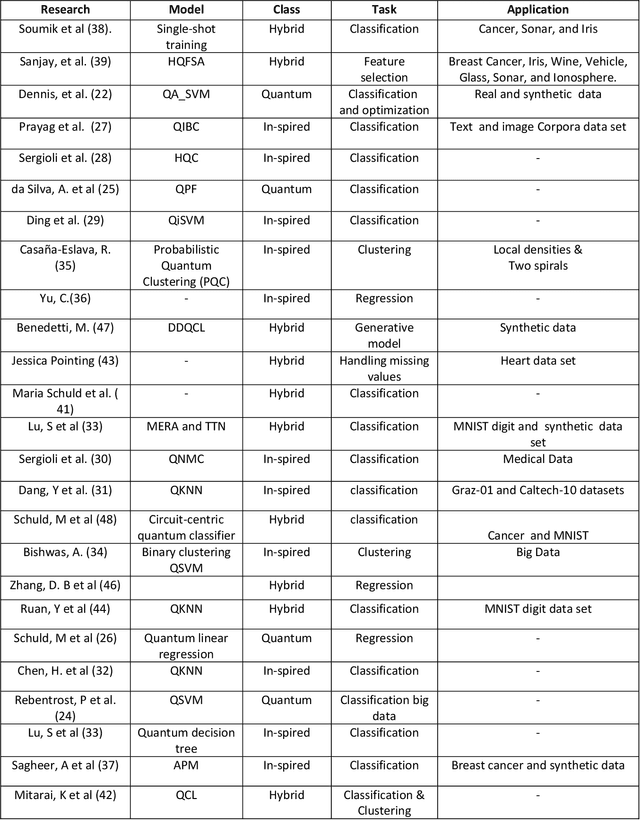
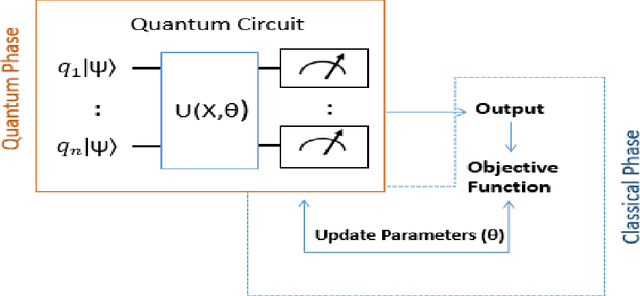
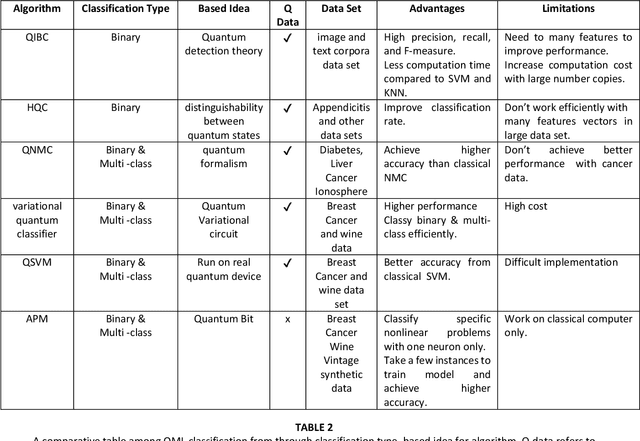
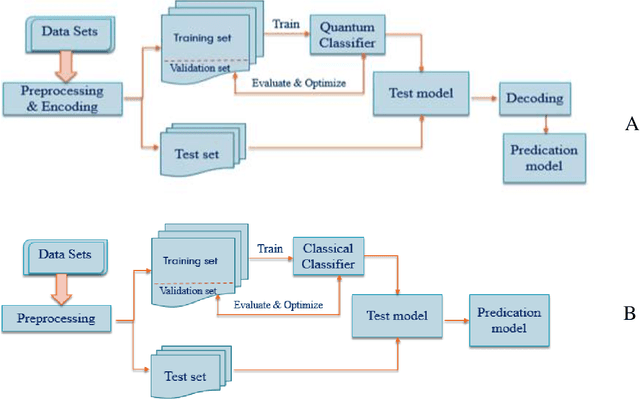
Abstract:Due to the superiority and noteworthy progress of Quantum Computing (QC) in a lot of applications such as cryptography, chemistry, Big data, machine learning, optimization, Internet of Things (IoT), Blockchain, communication, and many more. Fully towards to combine classical machine learning (ML) with Quantum Information Processing (QIP) to build a new field in the quantum world is called Quantum Machine Learning (QML) to solve and improve problems that displayed in classical machine learning (e.g. time and energy consumption, kernel estimation). The aim of this paper presents and summarizes a comprehensive survey of the state-of-the-art advances in Quantum Machine Learning (QML). Especially, recent QML classification works. Also, we cover about 30 publications that are published lately in Quantum Machine Learning (QML). we propose a classification scheme in the quantum world and discuss encoding methods for mapping classical data to quantum data. Then, we provide quantum subroutines and some methods of Quantum Computing (QC) in improving performance and speed up of classical Machine Learning (ML). And also some of QML applications in various fields, challenges, and future vision will be presented.
 Add to Chrome
Add to Chrome Add to Firefox
Add to Firefox Add to Edge
Add to Edge